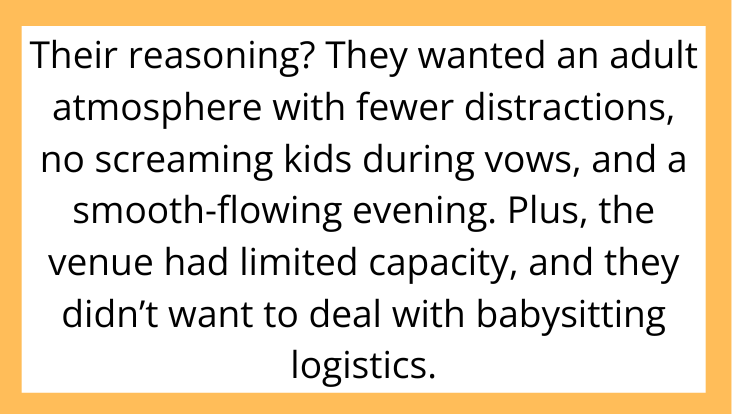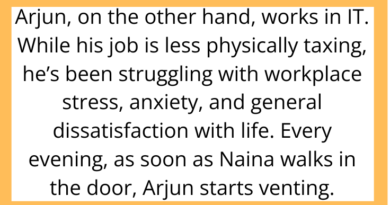Am I the Jerk for Not Letting My Sister Bring Her Baby to My Child-Free Wedding?
Weddings are meant to be joyful, celebratory milestones—but they can just as easily become battlegrounds of family tension. When it comes to enforcing boundaries like child-free rules, emotions can run high, especially when family members feel personally targeted.
In this AITAH scenario, one bride found herself in the center of a heated family conflict over her decision to host a child-free wedding. What started as a practical planning choice quickly spiraled into accusations, ultimatums, and a sibling fallout that could last longer than any marriage.
Setting the Scene: The Child-Free Wedding Policy

The Original Poster (OP), a 29-year-old bride-to-be, posted on Reddit’s AITAH forum to explain her side of the story. She and her fiancé had been planning their wedding for over a year. From the beginning, they both agreed on a child-free ceremony and reception.
Their reasoning? They wanted an adult atmosphere with fewer distractions, no screaming kids during vows, and a smooth-flowing evening. Plus, the venue had limited capacity, and they didn’t want to deal with babysitting logistics.
They informed all guests months in advance and even included the child-free policy on the invitations. Most friends and relatives understood—until OP’s older sister, a new mom, decided the rule didn’t apply to her.
The Conflict: Sister Refuses to Find a Babysitter

OP’s sister gave birth to a baby girl six months ago. When she received the invitation, she called OP to ask if she could bring the baby anyway. OP politely declined, reminding her of the child-free policy and suggesting several nearby family members who could babysit for the day.
That’s when things took a turn.
The sister claimed it was “unreasonable” to expect a breastfeeding mother to be separated from her baby and accused OP of being “cold” and “rigid.” She even suggested that OP should delay the wedding until her child was older—or at the very least, make an exception.
When OP stood her ground, the sister exploded. She announced she wouldn’t be attending the wedding at all and began rallying other family members to her side, framing OP as selfish and exclusionary.
Boundaries or Betrayal? Why the Rule Matters
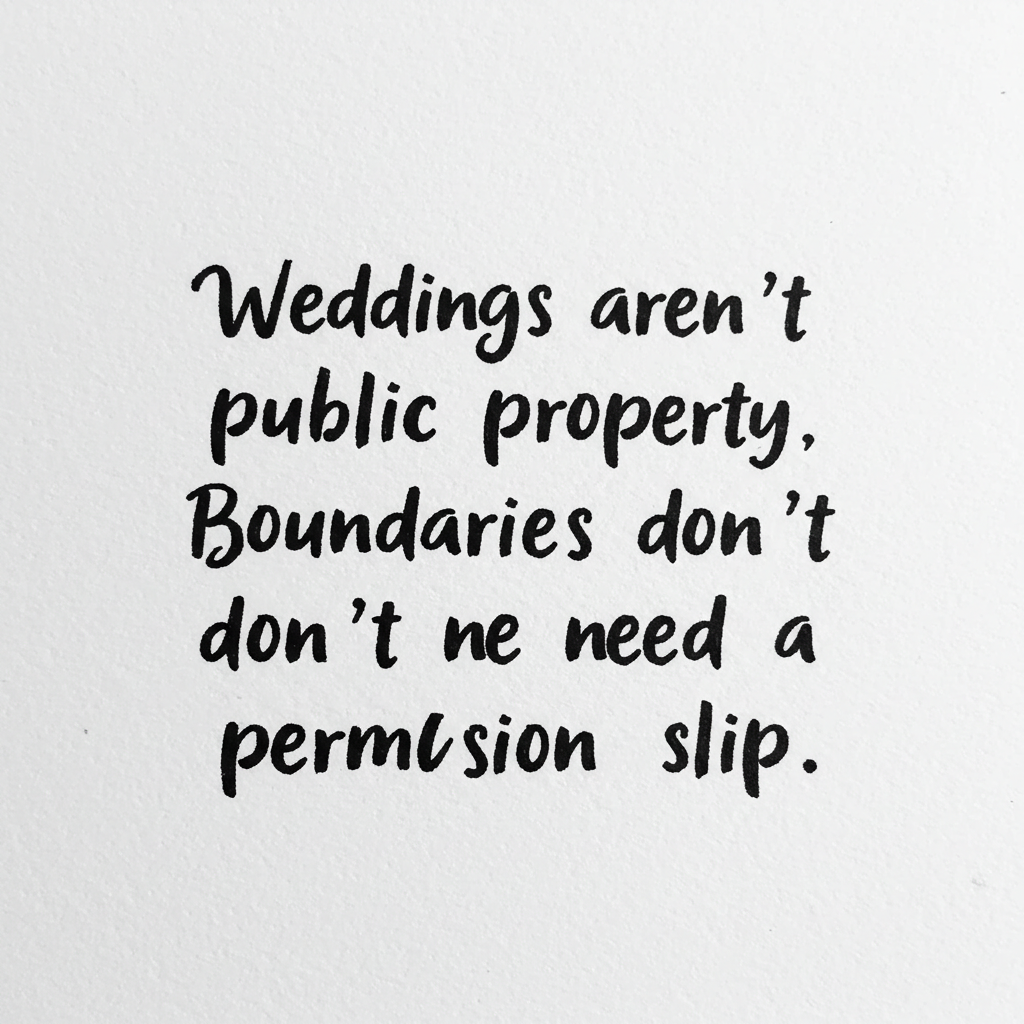
Weddings Are Personal Events, Not Public Property
While weddings involve family, they’re still personal events planned by the couple. From food choices to dress codes to guest lists, every detail is tailored to their preferences. A child-free wedding is a valid, common request—especially for couples seeking a peaceful or formal setting.
OP’s decision wasn’t an attack on children or parenting—it was a boundary. Enforcing boundaries doesn’t make someone a villain; it makes them an adult with a plan.
One Exception Opens the Floodgates

A common argument against strict guest rules is: “Just this once—what’s the harm?”
But weddings are full of people who feel entitled to exceptions. If OP had said yes to her sister, what about the cousin with two toddlers? The friend flying in with a baby? The moment one guest is allowed to bypass a boundary, others will expect the same, making enforcement impossible.
Consistency matters. And OP understood that.
Emotional Reactions vs. Rational Decisions
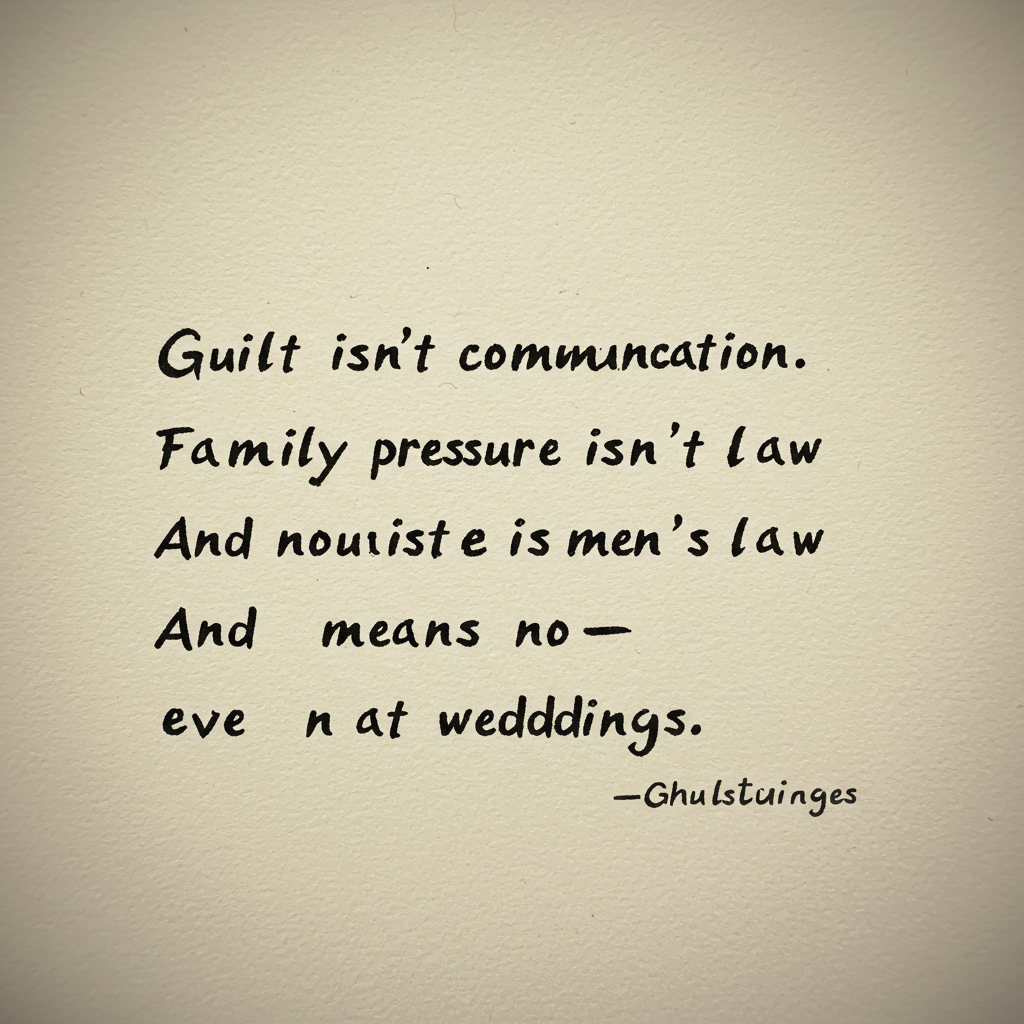
Guilt Trips Are Manipulation, Not Communication
OP’s sister used guilt as a weapon—invoking motherhood, breastfeeding, and family loyalty to paint OP as heartless. While emotional needs matter, using them to override someone else’s boundary is manipulative.
Rather than problem-solving (such as pumping milk, arranging short drop-ins, or stepping out during the reception), the sister resorted to all-or-nothing ultimatums.
That’s not collaboration. That’s coercion.
Family Pressure Doesn’t Equal Obligation
After OP’s sister backed out, other family members got involved. OP’s aunt called her to say she was “ruining the family dynamic.” Her cousin texted that she was “alienating new mothers.” OP’s own mother asked if it was worth losing a sister over a baby.
But here’s the thing: family pressure shouldn’t override thoughtful, pre-planned decisions—especially those communicated in advance. OP wasn’t blindsiding anyone. She was protecting her peace and her wedding vision.
The AITAH Community Responds
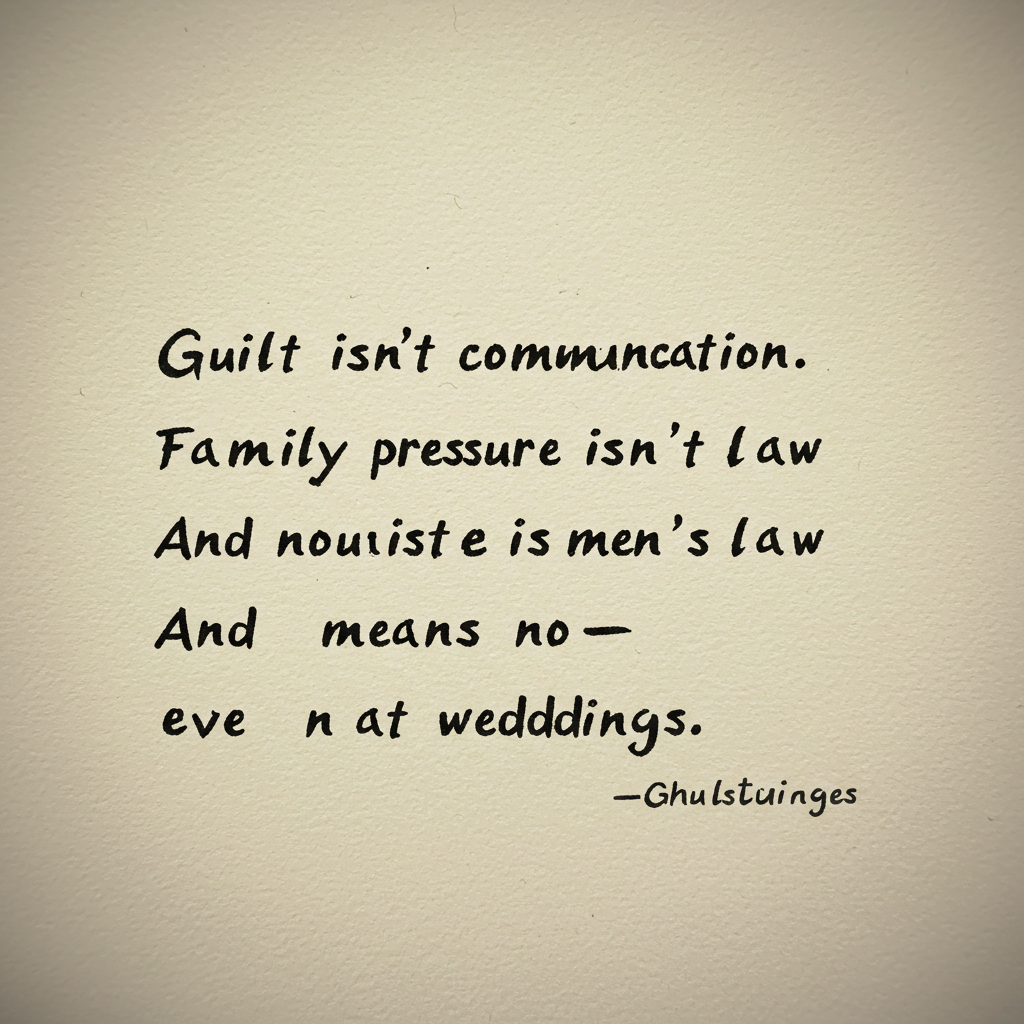
Reddit’s judgment? Not the jerk—overwhelmingly.
Here’s what some users had to say:
“Your wedding, your rules. If she can’t respect that, it’s on her—not you.”
“If the baby’s needs are so crucial, maybe your sister should respect her own limits and stay home—without blaming you.”
“Child-free weddings are valid. She’s not special because she has a kid.”
The consensus: OP had every right to set the terms for her big day. The sister’s anger didn’t stem from a lack of understanding—but from an expectation that her choices should override everyone else’s.
Could There Be a Middle Ground?
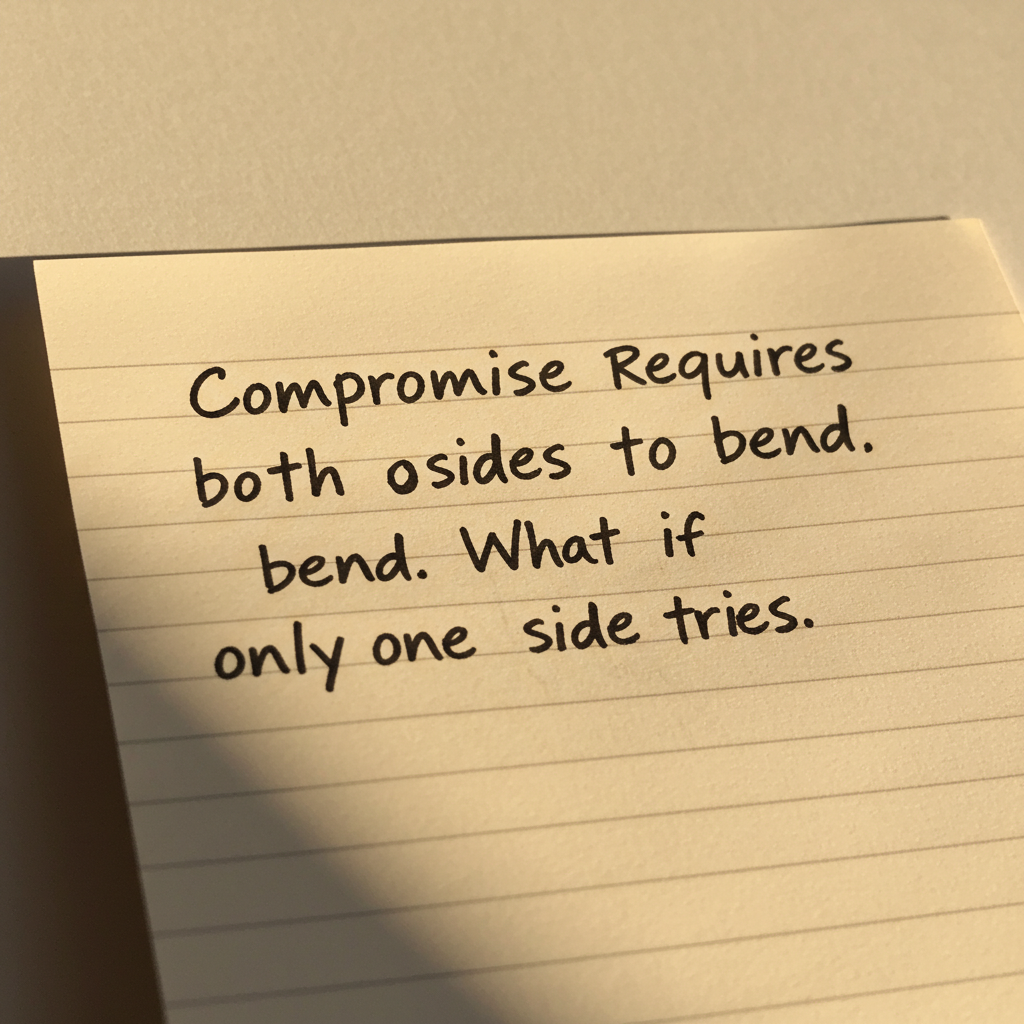
Some commenters offered alternative suggestions OP could consider—like allowing the sister to attend the ceremony and leave afterward, or hiring an on-site nanny service.
However, these suggestions only work when both sides are willing to compromise. In this case, OP tried to provide options, and the sister still responded with demands and threats.
When one party refuses to meet halfway, the other isn’t obligated to keep shifting the goalposts.
Final Thoughts: Holding Boundaries Doesn’t Make You the Bad Guy

Planning a wedding is stressful enough without being made to feel like a villain for sticking to your own rules. OP didn’t disrespect her sister—she enforced a standard that applied to everyone. That’s fairness, not favoritism.
The real question here isn’t about babies or weddings. It’s about respect. And OP showed hers by being upfront, honest, and consistent.
Sometimes, people won’t like your boundaries. That doesn’t mean you’re wrong for having them.
